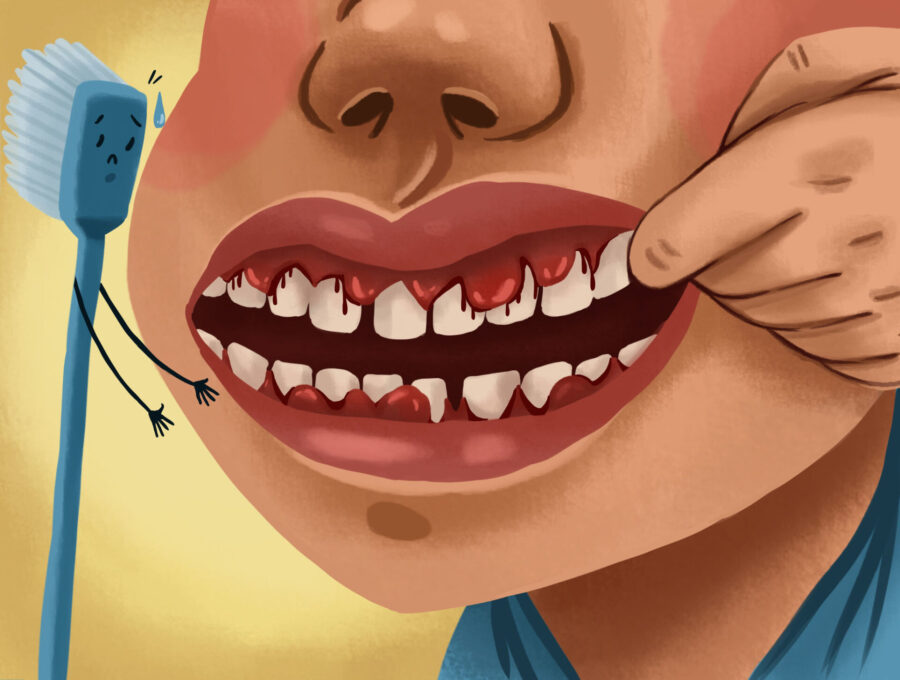
Why Do My Gums Bleed When I Brush or Floss?
Noticing blood in the sink after brushing or flossing can be alarming. While occasional gum bleeding might not seem serious, it’s often a sign that something isn’t quite right with your oral health. Understanding the reasons behind bleeding gums can help you take the necessary steps to maintain a healthy smile.
1. Gum Disease
Early Warning Sign: One of the most common reasons for bleeding gums is gum disease, particularly its early stage, gingivitis. Gingivitis occurs when plaque builds up along the gumline, leading to inflammation. Inflamed gums are more sensitive and prone to bleeding, especially during brushing or flossing.
Addressing the Issue: If caught early, gingivitis is reversible with proper oral hygiene or a gingivitis cleaning. Regular brushing, flossing, and professional cleanings can help eliminate plaque and reduce gum inflammation.
2. Improper Brushing or Flossing Technique
Aggressive Cleaning: Brushing or flossing too hard can damage your gums, causing them to bleed. Using a toothbrush with hard bristles or snapping the floss into your gums can also contribute to bleeding.
Gentle Approach: Switch to a soft-bristled toothbrush and use gentle, circular motions when brushing. When flossing, slide the floss carefully between your teeth without forcing it into your gums.
3. Poor Oral Hygiene
Plaque Buildup: Inconsistent brushing and flossing allow plaque to build up on your teeth and gums. Over time, this can lead to gum irritation and bleeding.
Daily Care: Brush your teeth at least twice a day and floss daily to remove plaque before it can cause problems. Consistent oral hygiene is key to preventing gum issues.
4. Vitamin Deficiencies
Nutritional Gaps: A lack of certain vitamins, particularly vitamin C and vitamin K, can lead to gum bleeding. These vitamins play a role in maintaining healthy gums and promoting proper blood clotting.
Balanced Diet: Ensure you’re eating a balanced diet rich in fruits and vegetables. If you suspect a deficiency, consider speaking with your dentist or doctor about supplements.
5. Pregnancy Gingivitis
Hormonal Changes: Hormonal changes during pregnancy can cause gums to become more sensitive, leading to a condition known as pregnancy gingivitis. This can result in bleeding gums when brushing or flossing.
Extra Care: Pregnant women should maintain diligent oral hygiene and visit the dentist regularly to monitor gum health. Pregnancy gingivitis usually subsides after childbirth.
Protecting Your Gums at Jonesboro Dental Care in Jonesboro, AR
Bleeding gums are often a sign that something needs attention, but the good news is that most causes are treatable. At Jonesboro Dental Care in Jonesboro, AR, Dr. Jonathan Cook, Dr. Mark Kingston, and our team are dedicated to helping you maintain healthy gums and a strong smile. Whether you need a professional cleaning, advice on brushing techniques, or a check-up to rule out gum disease, we’re here to support your oral health.
If you’re experiencing bleeding gums or have other concerns about your oral health, contact us at Jonesboro Dental Care today. Let’s work together to keep your gums healthy and your smile bright.
Image from Authority Dental under CC 2.0
Categorised in: Gum Health


